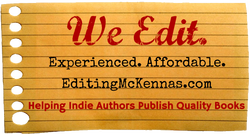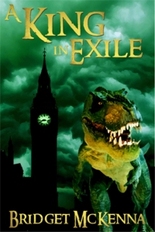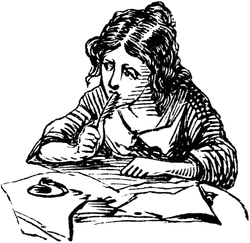
The Mystery
Non-writers’ questions for writers quite often focus on the mystery associated with the liar's art, such as “Where do you get your ideas?” And you know we can’t tell you that. Better if you don’t know too much when they come looking for you. Of course if I were to tell you, I’d have to admit that much of the time we don’t really know. One thing in and of itself is seldom an idea, and an idea on its lonesome is not a story. One of my early teachers told me that a story happens when enough partial ideas gather in a small enough space to create interesting combinations. Then something entirely different happens when the magic kicks in, but magic—like fortune—favors the prepared writer.
Some of the children who love language and stories decide at some point that they're writers. From there on, it's learning and practice and a lot of childish writing that gives way to better writing and eventually, if they keep at it, to good writing. And while there are courses and degree programs dedicated to turning out writers, and a bazillion words in print telling how someone else does it, every writer's journey from half-baked to good or beyond is as unique as the writer. As are the methods employed along the way.
The Method(s)
Writers’ conversations with other writers are usually unconcerned with mystery (we already know we don't know), but quite often touch on method: “How do you handle (this or that exact approach, aspect, problem, stumbling-block, disaster)?” On these matters any writer I know can speak until the end of time, scarcely pausing for breath. Put two or more of us together anywhere and we’ll come back to those subjects again and again. And although there are commonalities among writers and their methods, the differences are—as with most things—far more instructive.
I know a writer who is so courageous and so virtuous that he writes his second draft of a novel completely independent of his first. By this I mean that he actually types the second draft into a blank screen. Blimey. That goes right into my jaw-dropping facts column. I have never had the courage (or the virtue, he would surely agree) to do it myself, but I can’t argue with the fact that he’s a crackerjack writer and storyteller with a far more successful writing career than mine. Recently I read an article he wrote wherein he allowed that his method is not necessarily for everyone. It’s certainly not, though no less courageous or virtuous for all that. Add to that the fact that he’s also a fast writer with multiple projects on the fire at any given time, and you have a candidate for literary sainthood, or at the very least, dazzling success.
I have known writers who agonized for hours over the next word in a paragraph, unable to go on until the exact shade of meaning had revealed itself via the offices of their muse. I once heard a writer confess he’d spent two weeks on one sentence. Writers to whom words come that hard will not likely be caught throwing them out and starting over. They will probably also never finish their first novel.
I am not much like either of those examples. I have never re-keyed a draft of anything longer than 7000 words or so, and when a shade of meaning hides itself between two words, I pretend not to notice and type a couple of square brackets for it to fit itself between when it’s ready. Words are like cats. Herding them is futile and results in wounds.
To Outline, or...
My virtuous friend and I once tried to collaborate. As the kind of writer I'm used to being, I wanted to ask questions and find answers about the story universe, so that understanding the rules, I could write within them, or at least know when and why I might color outside the lines. He wanted to start writing and discover the rules as he went, and to hell with the lines altogether. Sadly, neither of us could quite grasp the other’s way of approaching a story well enough to proceed. I’m still kind of sad about that—I would love to have created some fiction with him.
I outline. There. I said it. I always outline novel length fiction, and for nonfiction like The Little Book of Self-Editing for Writers it's likewise essential to my writing process; I can't imagine being able to write that book or any other like it without a pretty thorough and detailed outline. But if “outline” conjures up images of letters and numbers and staggered indents, like your eighth-grade term papers, rest assured it's nothing much like that. For me it’s more like a list of points to remember as I write: Character, Context, Conflict, attempts to resolve the conflict, Resolution, and like that—a loose seven-point plot structure, just so I know I'm touching the bases. As I go along, I’ll expand each point a bit with a few words about what’s going on and how it ties in to the other elements. Eventually, I end up with a meandering document that ranges over and into and around my story, occasionally crossing its own trail. Most of it never winds up in the finished product, but producing it seems vital to the way I do things, particularly when writing at novel length.
My novel outlines become a conversation with myself about the project. I'll ask myself questions about characters and settings and story events and plot problems, then attempt to answer them. James Thurber, great American humorist and personal hero of mine, once said: ‘I’d rather know some of the questions than all of the answers.’ Questions are more powerful than most people realize. The ways in which you ask them determine what kinds of answers are even possible, so if I don't get a useful answer, I'll reframe the question to bring out the information I need. Later these answers might find a way into a slightly less rambling plot synopsis, to which I add timeline notes to keep the timing of events straight in my mind and on the page.
Lately I've been experimenting with drawing a mind map on a big sheet of paper with colored pens and the odd sticky note, which puts other parts of my brain to work. Multi-sensory encoding (speaking, hearing, writing, drawing, moving, touching, seeing—including the use of shape and image and color) is a good way to get things cooking together at a deep level. And the possible combinations of sensory input are nearly infinite—you could physically walk through a novel timeline, using a whole room to lay out your story, if that would help you visualize it better.
I’m certain that some writers who don’t like to either draw or write down their structure at the beginning have some other way of keeping all that information in front of them, or it isn’t important to them whether or not they do. To them I say, “Bravo” and “Brava.” But much as I've written stories off the top of my head without the ghost of an outline ("The Bard Effect" is one such that came right off the ends of my fingers in a day), it might behoove seat-of-the-pants writers to plan out a story in the spirit of experimentation and see what happens. The results might surprise. That's what happened to my friend R.K. MacPherson, a die-hard freeform novelist who had a come-to-Jesus moment recently when he learned the joys of outlining before you begin. He wrote his first published novel entirely by the seat of his pants, but I suspect he'll outline in some way from now on.
I’ve known writers to confess a sort of fear of outlines: that if they construct them they might be somehow compelled to follow them to the bitter end, thereby impeding the flow of creativity. That's never been my experience, and besides, sticking with an outline is neither required nor desired, 'cos you have to leave room for...
...The Magic
The magic can occasionally be laid to the workings of a mysterious cosmos. Any writer who's been at this a while has stories about requested answers and vital information and solutions that fell from a clear blue sky, wrapped in ribbon and bearing a card: "You're welcome. The Universe." Usually, however, the source is closer to home—the writer's unconscious mind.
As a hypnotist, I know a thing or two about unconscious minds, including the fact that they don't actually exist. That is to say you don't actually have two minds. Even your two brain hemispheres are not separate minds—they share most if not all tasks and functions between them. Likewise you don't have one mind that's conscious and one that's not, but the terminology is deeply rooted and convenient. I've found it useful to think of your one mind as having two kinds of processes going on simultaneously.
Unconscious thinking processes can be modeled as the thoughts that are occurring out of our awareness, in contrast to the thinking processes of the conscious mind—the thoughts we're aware of having at any particular time. Since we're only capable of holding something like five to nine thoughts in consciousness at any one time, everything else—everything out of consciousness—is being handled by the unconscious mind. It's the mind that intuits, the mind that responds, the mind that dreams. I believe stories are one of the ways our unconscious minds dream, and that makes writers very special dreamers whose waking dreams become the dreams—and nightmares—of people they will never meet.
The Madness
It's a peculiar thing, this art of telling lies that are true. It grips otherwise ordinary and respectable folks and transforms their lives utterly. I had been a writer since childhood, but came to consider it a childish fancy that needed to be put aside in order to live some other life. The moment the adult me knew that I was doomed to this life (had doomed myself), and that I was, had always been, would always be a writer, is burned into my memory as deeply as the birth of any of my children—as deeply as falling in love.
Writing is a sort of madness that causes the afflicted to see and hear and touch things others can't, then be gripped with a burning need to make others see and hear and feel those things. It starts with the natural human affinity for narrative, then demands not just to appreciate stories, but to create them ex nihilo—from air and shadows and bumps in the night. Once a person has contracted this madness and been turned into a writer, it invariably proves as fatal as birth itself.
So if you're on this journey too, welcome. We're okay, you and I, even if the others are a bit mad. And to any non-writing readers who may be feeling strange urges to tickle a keyboard with their own stories, I give you the sage advice of fiction master Lawrence Block: Take two aspirin and lie down for twenty minutes, and it may pass.
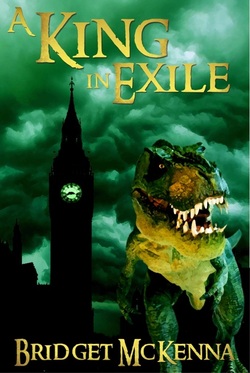
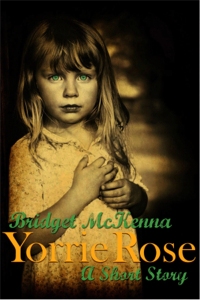
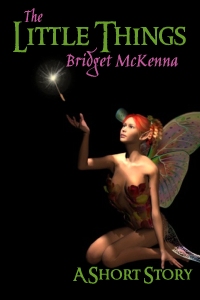
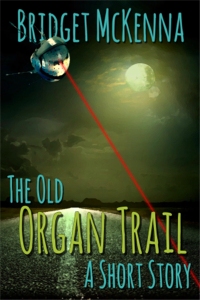

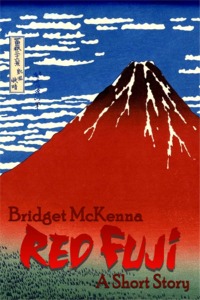
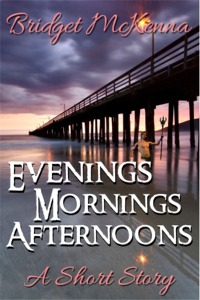
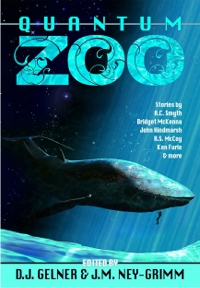


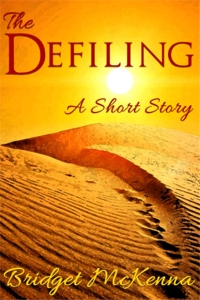
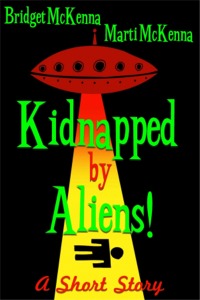
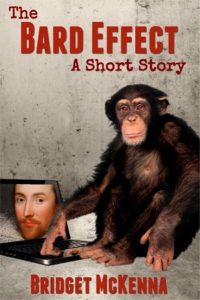
 RSS Feed
RSS Feed

